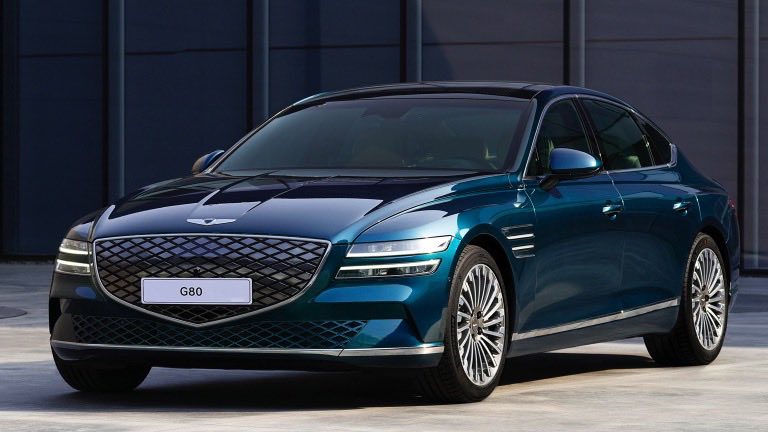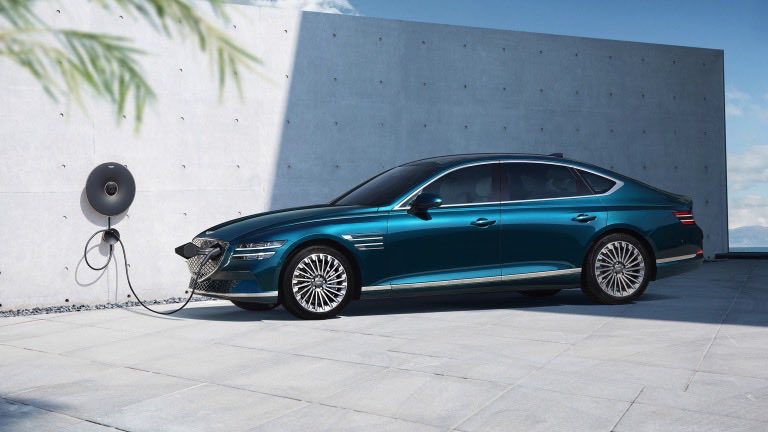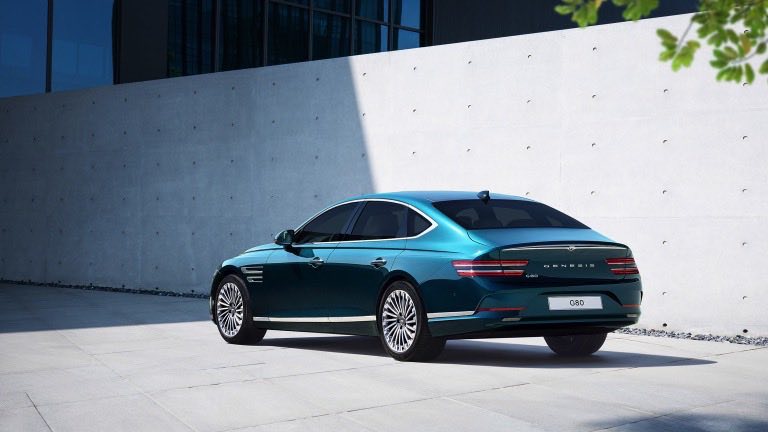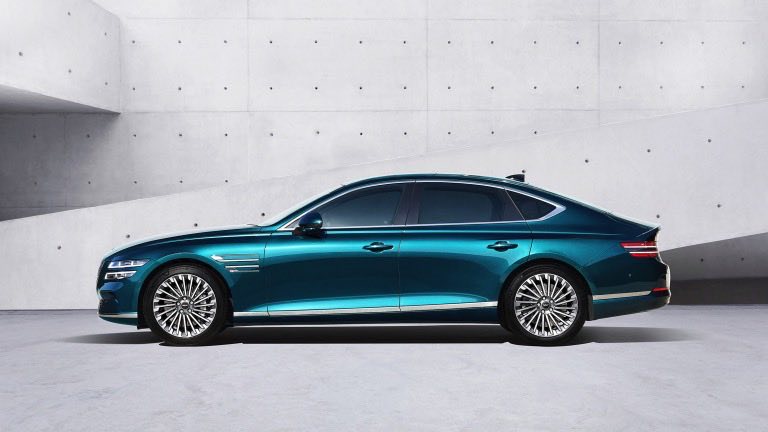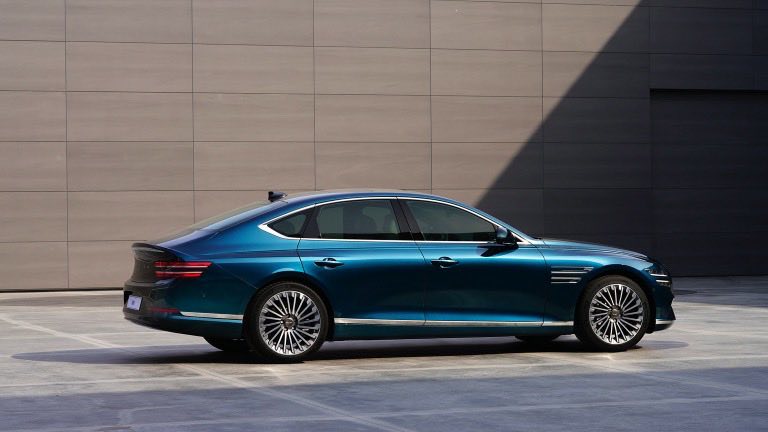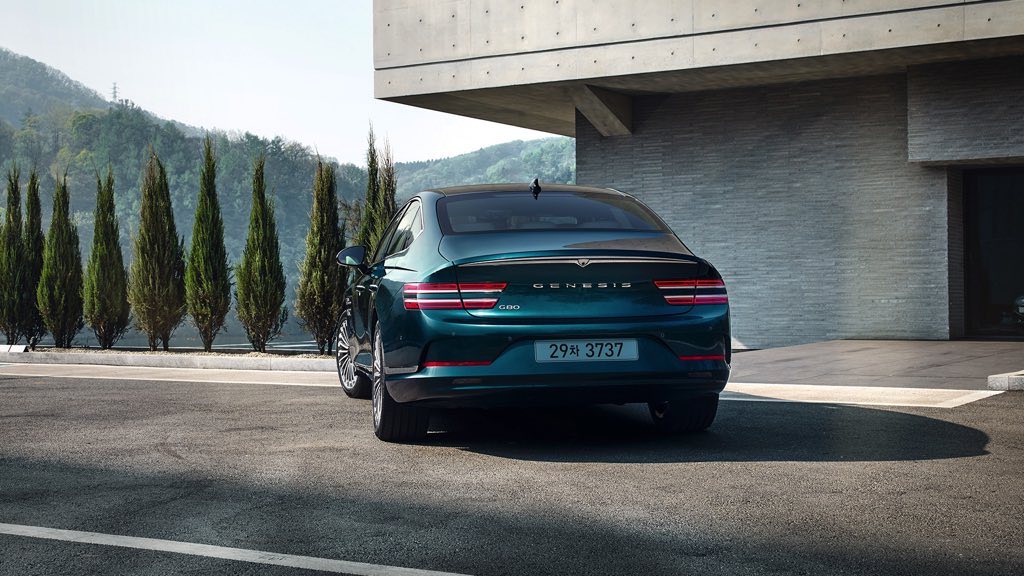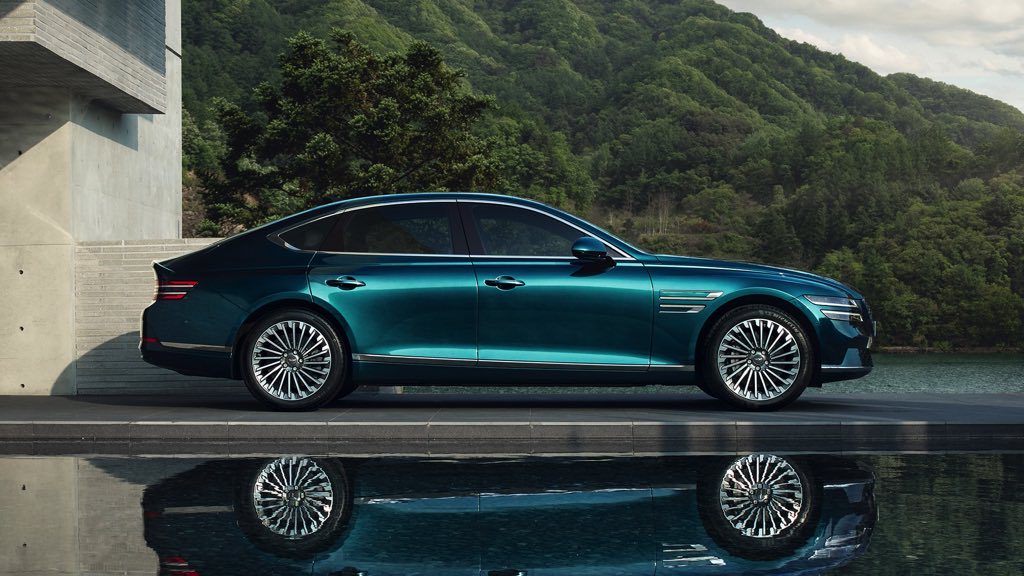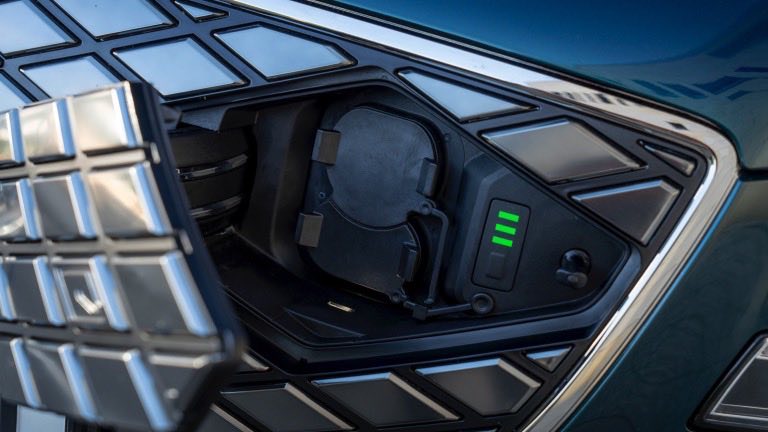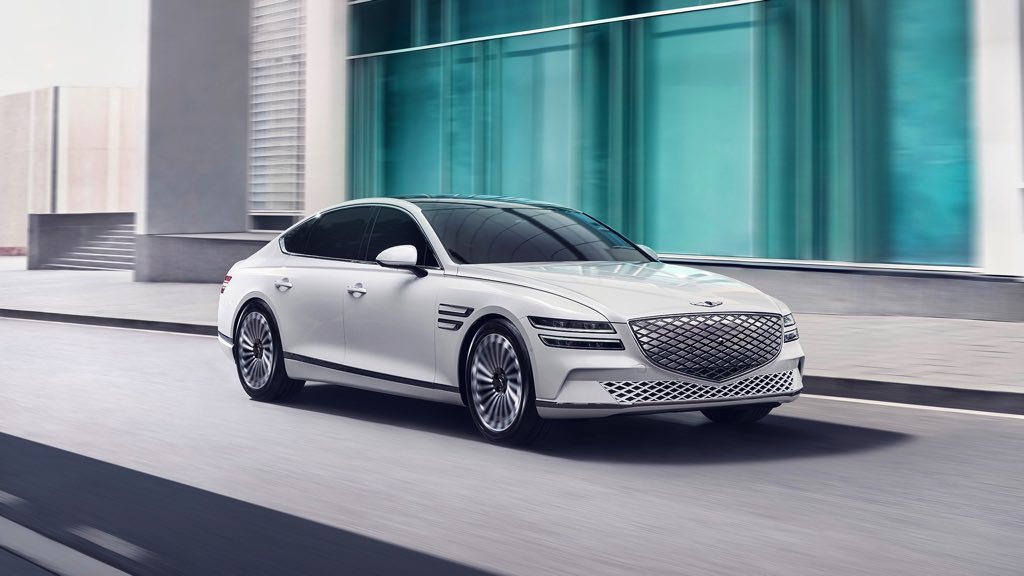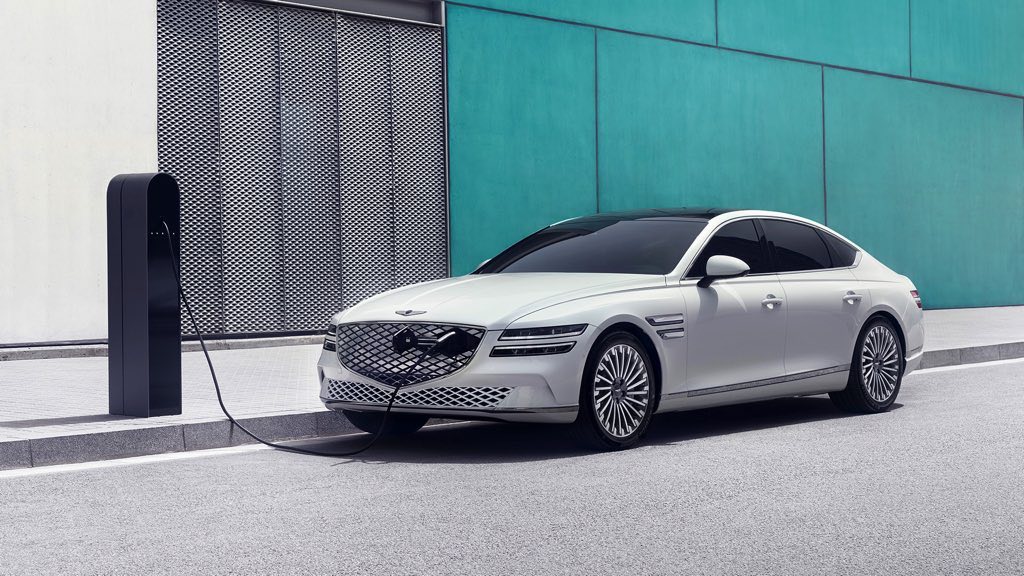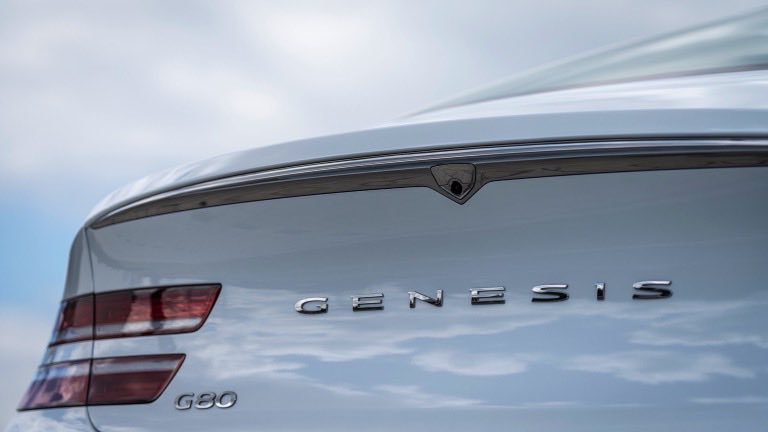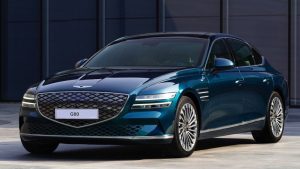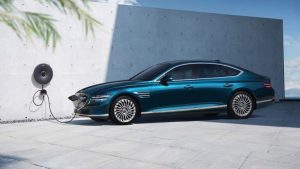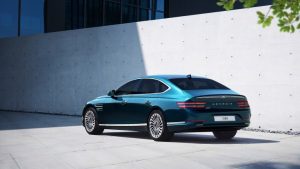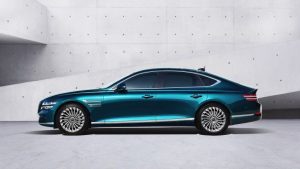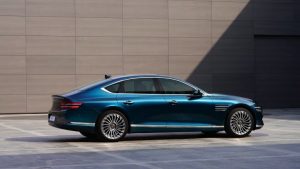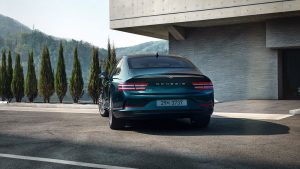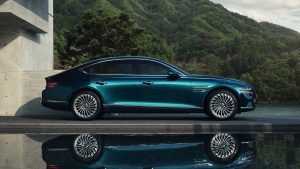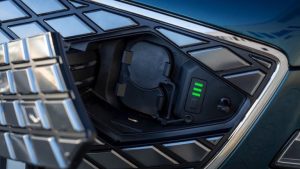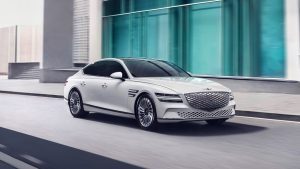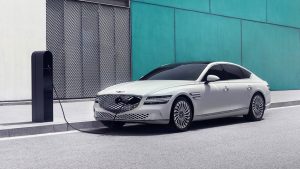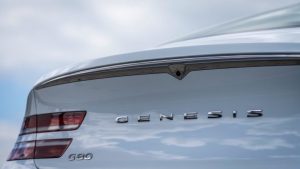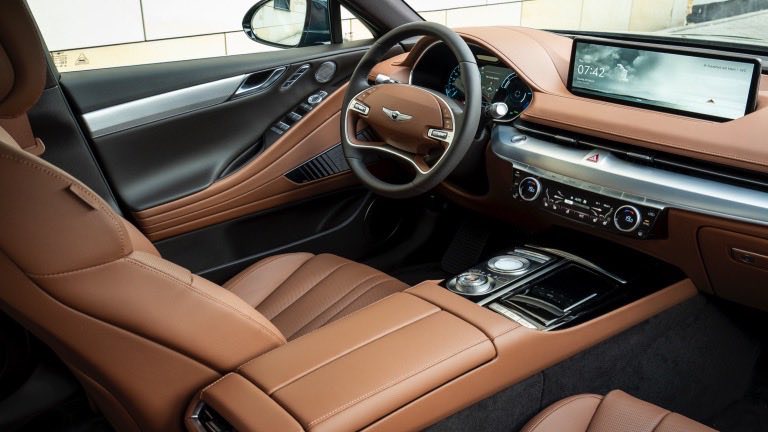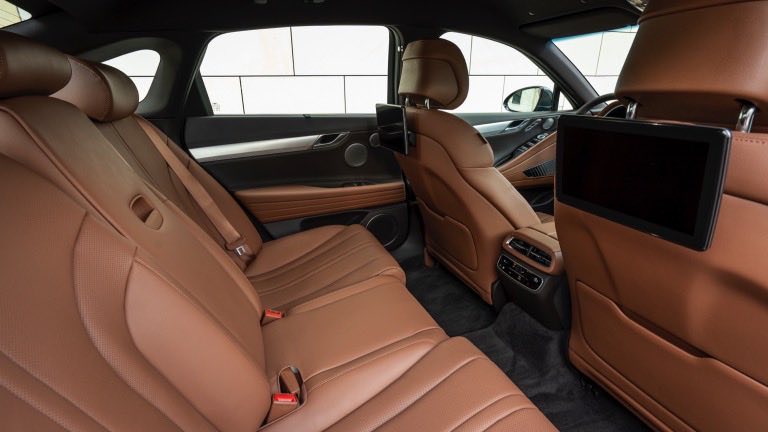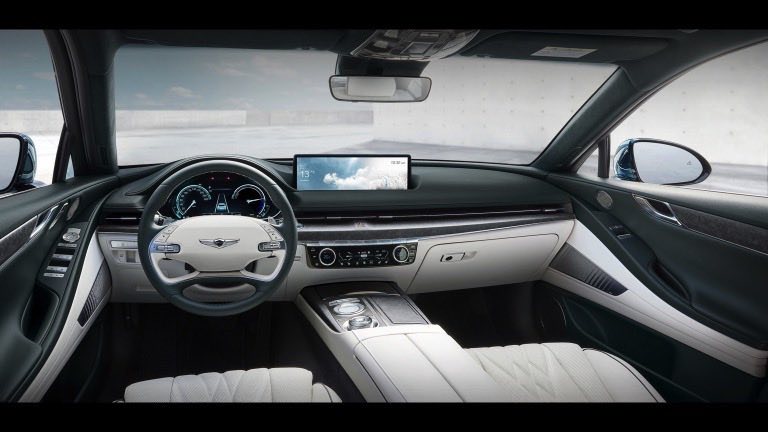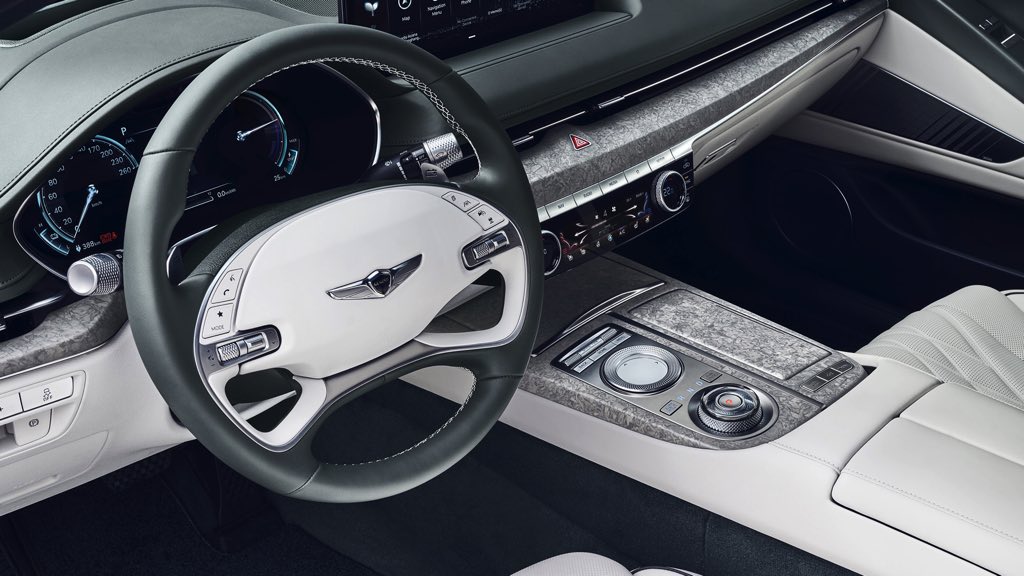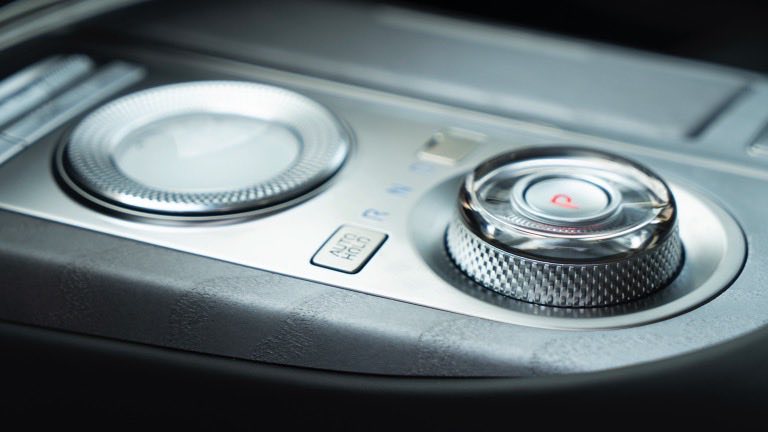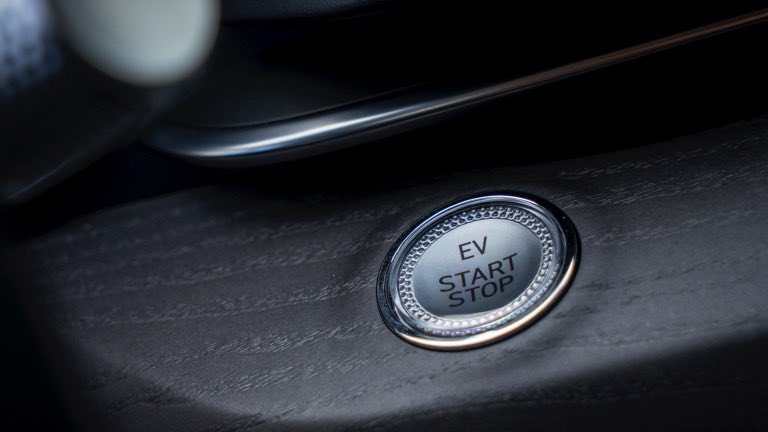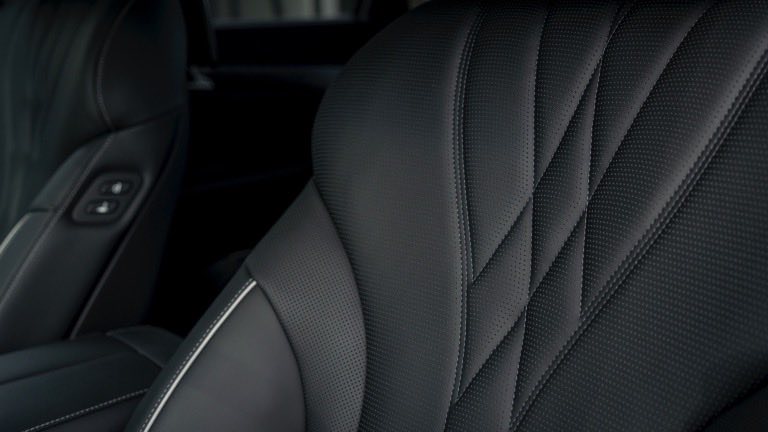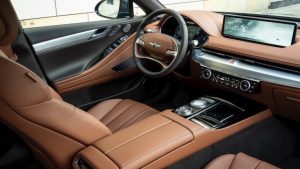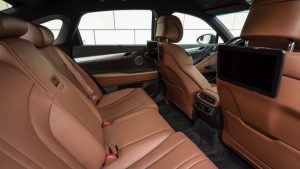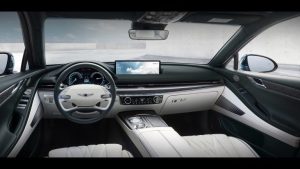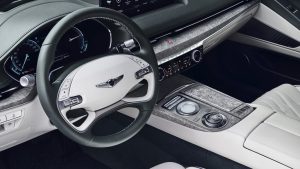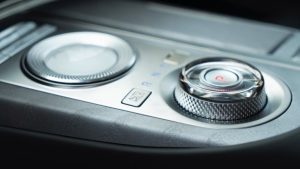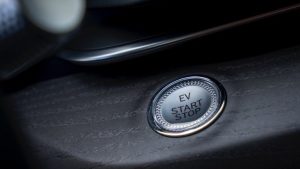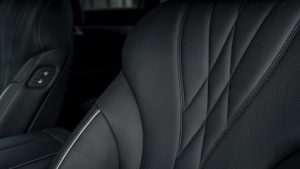Genesis G80 Electrified Luxury
The Genesis G80 is a luxury sedan produced by the South Korean automaker Genesis, which is a division of the Hyundai Motor Company. The electrified version of the G80, called the G80 EV, is an all-electric version of the sedan.
The G80 EV is powered by an 87.2-kWh lithium-ion battery pack and an electric motor that produces 700 Nm of torque. It has a range of up to 440 km on a single charge and can accelerate from 0- 100 km/h (60 mph) in just 4.9 seconds.
The G80 EV also features a luxurious interior with a 14.5-inch infotainment display, a 12.3-inch digital instrument cluster, and a 21-speaker Lexicon sound system. It also has a suite of advanced safety features, including forward-collision warning, automated emergency braking, lane-departure warning, and adaptive cruise control.
Overall, the Genesis G80 EV is a compelling choice for drivers who want a luxurious and powerful electric sedan with a long range and advanced safety features.
| Performance | |
| Acceleration 0 – 100 km/h | 4.9 sec |
| Top Speed | 225 km/h |
| Electric Range | 440 km |
| Total Power | 272 kW (370 PS) |
| Total Torque | 700 Nm |
| Drive | AWD |
| Battery and Charging | |
| Battery Capacity | 87.2 kWh |
| Battery Useable* | 82.5 kWh |
| Europe | |
| Charge Port | Type 2 |
| Port Location | Front – Left |
| Charge Power | 11 kW AC |
| Charge Time (0->440 km) | 9 hours |
| Charge Speed | 50 km/h |
| Fastcharge Port | CCS |
| FC Port Location | Front – Left |
| Fastcharge Power (max) | 230 kW DC |
| Fastcharge Time (44->352 km) | 21 min |
| Fastcharge Speed | 880 km/h |
| Energy Consumption | |
| EVDB Real Range | |
| Range | 440 km |
| Vehicle Consumption | 188 Wh/km |
| CO2 Emissions | 0 g/km |
| Vehicle Fuel Equivalent | 2.1 l/100km |
| WLTP Ratings | |
| Range | 520 km |
| Rated Consumption | 191 Wh/km |
| Vehicle Consumption | 159 Wh/km |
| CO2 Emissions | 0 g/km |
| Rated Fuel Equivalent | 2.1 l/100km |
| Vehicle Fuel Equivalent | 1.8 l/100km |
|
Rated = official figures as published by manufacturer. Rated consumption and fuel equivalency figures include charging losses.
|
|
|
Vehicle = calculated battery energy consumption used by the vehicle for propulsion and on-board systems.
|
|
| Real Energy Consumption Estimation between 131 – 258 Wh/km | |
| City – Cold Weather | 194 Wh/km |
| Highway – Cold Weather | 258 Wh/km |
| Combined – Cold Weather | 223 Wh/km |
| City – Mild Weather | 131 Wh/km |
| Highway – Mild Weather | 201 Wh/km |
| Combined – Mild Weather | 163 Wh/km |
|
Energy use for each trip will vary considerably depending on the driver and the conditions. Therefore, we have provided a range of estimates which can be useful in developing an understanding of the potential benefits of this technology.
|
|
| Dimensions and Weight | |
| Length | 5005 mm |
| Width | 1925 mm |
| Width with mirrors | No Data |
| Height | 1470 mm |
| Wheelbase | 3010 mm |
| Weight Unladen (EU) | 2325 kg |
| Gross Vehicle Weight (GVWR) | 2770 kg |
| Max. Payload | 520 kg |
| Cargo Volume | 354 L |
| Cargo Volume Max | No Data |
| Cargo Volume Frunk | 0 L |
| Roof Load | No Data |
| Tow Hitch Possible | No Data |
| Towing Weight Unbraked | No Data |
| Towing Weight Braked | No Data |
| Vertical Load Max | No Data |
| Miscellaneous | |
| Seats | 5 people |
| Isofix | No Data |
| Turning Circle | 11.6 m |
| Platform | No Data |
| Car Body | Sedan |
| Segment | F – Luxury |
| Roof Rails | No Data |
| EV Dedicated Platform | No Data |
Home and Destination Charging (0 -> 100%)
A public charging station is required to use the highest possible charging rate. The EVSE/charging station’s charging capacity affects how long it takes to fully charge the battery. The table below shows all possible options for fully charging the Genesis G80 Electrified Luxury.
In Europe, plugging an electric car into an outlet is often as easy as plugging it into a household outlet, but there are differences from country to country. The table below shows the different ways to charge the Genesis G80 Electrified Luxury, but in some countries some chargers may not be available.
Type 2 (Mennekes – IEC 62196)

| Charging Point | Max. Power | Power | Time | Rate |
| Wall Plug (2.3 kW) | 230V / 1x10A | 2.3 kW | 42h15m | 10 km/h |
| 1-phase 16A (3.7 kW) | 230V / 1x16A | 3.7 kW | 26h15m | 17 km/h |
| 1-phase 32A (7.4 kW) | 230V / 1x32A | 7.4 kW | 13h15m | 33 km/h |
| 3-phase 16A (11 kW) | 400V / 3x16A | 11 kW | 9 hours | 49 km/h |
| 3-phase 32A (22 kW) | 400V / 3x16A | 11 kW | 9 hours | 49 km/h |
Fast Charging (10 -> 80%)
If you want to enjoy driving an electric car, one of the most important features to consider is the number of miles per hour the car can travel while charged. This is called the “range” of the car. All electric cars have a certain range, even if they are 100% charged. This is because they do not have an internal combustion engine to lean on if you need to drive a long distance.
Max. Power: The maximum power provided by the charging point
Avg. Power: The average power provided by the charging point during a session of 10% to 80%.
Time: the time it takes to charge from 10% to 80%
Speed: the average charging rate during the session of 10% to 80%
Combined Charging System (CCS Combo 2)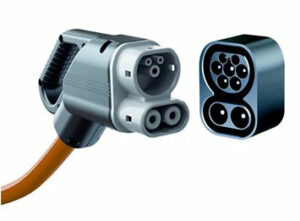
| Charging Point | Max. Power | Avg. Power | Time | Rate |
|---|---|---|---|---|
| CCS (50 kW DC) | 50 kW | 50 kW | 73 min | 250 km/h |
| CCS (100 kW DC) | 100 kW | 90 kW † | 41 min | 450 km/h |
| CCS (150 kW DC) | 150 kW | 120 kW † | 30 min | 610 km/h |
| CCS (175 kW DC) | 175 kW | 140 kW † | 26 min | 710 km/h |
| CCS (350 kW DC) | 230 kW † | 170 kW † | 21 min | 880 km/h |
| Brand | Genesis |
| Model | G80 Electrified Luxury |
| Body Style | Sedan |
| Car Engine | electric |
| Motor power | 272 |
| Maximum Torque, Nm | 700 |
| Battery Energy, kWh | 87.2 |
| Power reserve (NEDC/EPA/WLTP), km | - / - / 440 |
| Level Charging (230/400/DC), hours | 13.5 / 9.0 / 0.21 |
| Electrical Acceleration, 0-100 km/h (0-62.1 mph) in sec | 4.9 |
| Top Speed, km/h | 225 |
